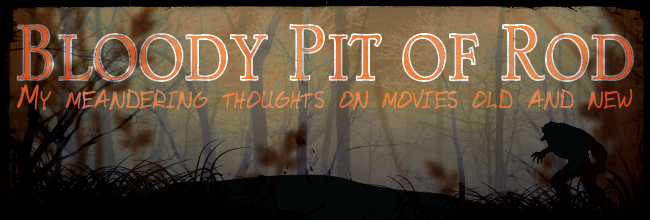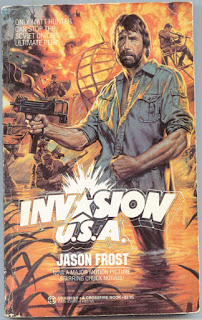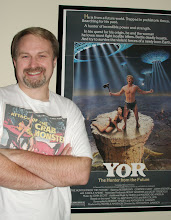I have enjoyed reading film novelizations since I was a wee
lad. I have great memories of reading the STAR WARS and ALIEN novelizations
long before I got to see the films and I've always thought that having those
stories already present in my head when I sat down for my first viewing added
to the experience. Usually though I have ended up reading the novelization well
after seeing the film the book was based upon. There are a number of reasons
for doing this. In my opinion the best reason is to see what changes were made
to the finished film that stayed in the novel. These can be things as small as
extra snatches of dialog or as big as entire sequences that didn't get filmed
for various reasons. I always find the books interesting and quick reads even
if they offer little in the way of top level writing or really anything more
than simple, effective prose. But simple and effective prose is all these books
require so when I read one of them I know what to expect.
Until now the only unifying trait tying all the
novelizations I have read together would be that I actually liked the film
being transmogrified into a book. That might seem like a given but I have
finally broken that streak by reading a book based on a film I consider very,
very bad. Indeed, I find INVASION USA (1984) so bad I entered it into our
annual Turkey Night of Bad Cinema recently to introduce others to its
incredible ridiculousness. So, why read the novelization of a terrible 80s
action film starring renowned plank of wood Chuck Norris? This blog post by Joe Kenney over on GloriousTrash made it necessary.
So, now that I've read INVASION USA what do I think? Its a
blast! Exactly as Mr. Kenney noted this version of the story actually makes
sense. In the film Norris' blank-eyed hero Hunter seems to just repeatedly,
magically appear where ever villain Rostov 's
terrorists are causing havoc. Hunter then mows the bad guys down with his
mini-submachine guns and then fades back into the night. Always the night. It
is this repeated pattern of superhuman ability to locate the bad guys followed
by near comic slaughter that makes the film so damned funny. But in the novel
we see that Hunter is smartly tracking reporters that are being tipped off by
the terrorists to increase the amount of news coverage each event receives. See
how easy that was to fix? Why is that not in the movie?
Also, the antagonism between Hunter and Rostov is explained very well with a nightmare
flashback detailing the opportunity Hunter had to kill the dastardly fellow
several years before. This information makes Hunter's repeated use of the
phrase 'time to die' actually mean something in the narrative. It also makes Rostov 's blind hatred for
Hunter clear and understandable which is far beyond what the film seems capable
of.













2 comments:
Sadly, David Morrell's novelization of RAMBO III takes itself just bit too seriously to be enjoyed in the same vein as Obstfeld's superior INVASION USA adaptation. For all his prowess as an action/suspense writer, Morrell spends an inordinate amount of time in the RAMBO III tome focusing on Rambo's new found Zen Buddhist beliefs and pondering the history of Afghanistan (a country most Americans knew nothing about in those days). As dumb as the film is, it's preferable to the novel if you want trashy macho action. Unlike INVASION USA, which is eminently forgettable onscreen but magnificent in print.
Wow! Thanks for the info about the RAMBO III novel- I was actually considering picking it up a few weeks ago when I spotted it on a shelf of used books but something pushed me away....maybe luck or fate or Zen Buddhist created waves of boredom?
Post a Comment